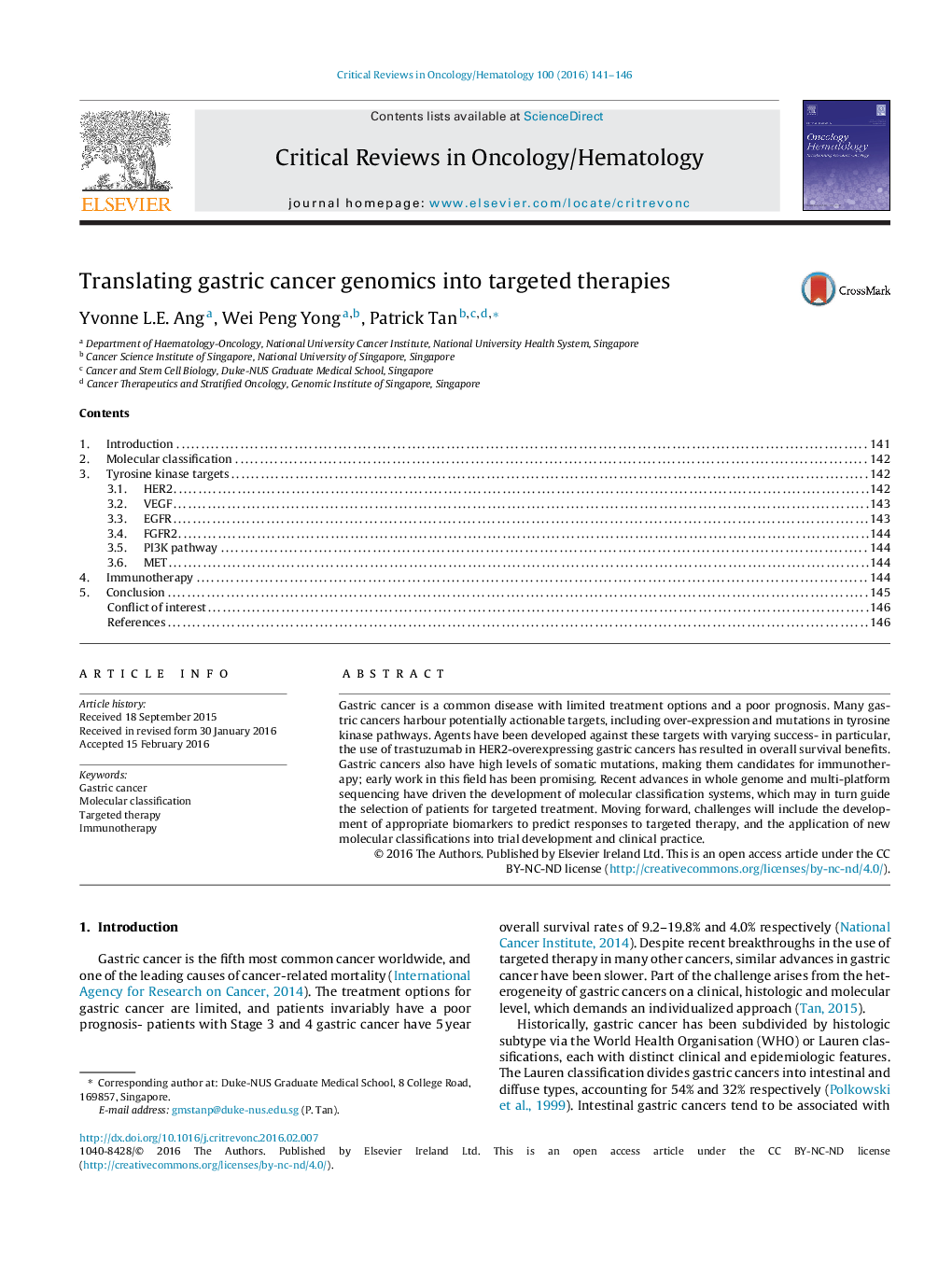| Article ID | Journal | Published Year | Pages | File Type |
|---|---|---|---|---|
| 6113442 | Critical Reviews in Oncology/Hematology | 2016 | 6 Pages |
â¢Multi-platform sequencing has allowed the molecular classification of gastric cancers.â¢Promising agents against tyrosine kinase targets are being developed.â¢High levels of somatic mutations make gastric cancer a good candidate for immunotherapy.
Gastric cancer is a common disease with limited treatment options and a poor prognosis. Many gastric cancers harbour potentially actionable targets, including over-expression and mutations in tyrosine kinase pathways. Agents have been developed against these targets with varying success- in particular, the use of trastuzumab in HER2-overexpressing gastric cancers has resulted in overall survival benefits. Gastric cancers also have high levels of somatic mutations, making them candidates for immunotherapy; early work in this field has been promising. Recent advances in whole genome and multi-platform sequencing have driven the development of molecular classification systems, which may in turn guide the selection of patients for targeted treatment. Moving forward, challenges will include the development of appropriate biomarkers to predict responses to targeted therapy, and the application of new molecular classifications into trial development and clinical practice.
